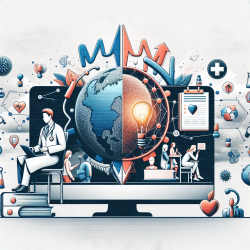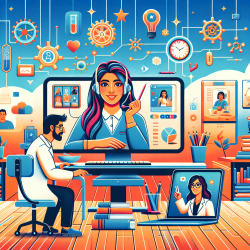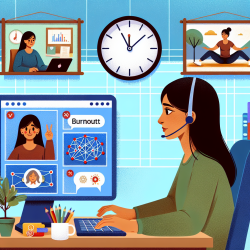In today's digital age, misinformation can spread as rapidly as any virus, creating an infodemic that poses significant challenges to public health and effective communication. For practitioners in online therapy, especially those working with schools, understanding and managing infodemics is crucial. This blog post explores how you can enhance your skills by leveraging insights from the research article titled A Public Health Research Agenda for Managing Infodemics: Methods and Results of the First WHO Infodemiology Conference.
What is an Infodemic?
An infodemic is an overflow of information, including false or misleading details, that spreads quickly across digital and physical environments. This surge of information can lead to confusion, risky behaviors, and erosion of trust in health authorities. As an online therapy practitioner, you must be equipped to navigate and mitigate these challenges effectively.
Key Takeaways from the WHO Infodemiology Conference
The World Health Organization (WHO) organized the first global infodemiology conference to address the COVID-19 infodemic. Here are the five main workstreams identified in their research agenda:
- Measuring and Monitoring: Continuously track the impact of infodemics during health emergencies.
- Detection and Understanding: Identify and comprehend the spread and risks associated with infodemics.
- Response and Intervention: Deploy strategies to mitigate and protect against the harmful effects of infodemics.
- Evaluation and Resilience: Assess interventions and strengthen community resilience.
- Development and Application: Promote the creation and adaptation of tools for managing infodemics.
Implementing Research Outcomes in Online Therapy
Here are some practical steps you can take to integrate these findings into your practice:
- Stay Informed: Regularly update yourself with credible sources and research to counter misinformation effectively.
- Educate Your Clients: Teach students and their families how to identify reliable information and debunk myths.
- Utilize Technology: Leverage digital tools and platforms that promote accurate information and filter out false data.
- Build Trust: Establish and maintain a trustworthy communication channel with your clients.
- Collaborate: Work with other educators, health professionals, and fact-checkers to create a united front against misinformation.
Encouraging Further Research
While implementing these strategies is a great start, continuous learning and research are essential. Encourage your peers and colleagues to delve deeper into the subject. Participating in research studies or even conducting your own can provide valuable insights and contribute to the broader knowledge base.
To read the original research paper, please follow this link: A Public Health Research Agenda for Managing Infodemics: Methods and Results of the First WHO Infodemiology Conference.










